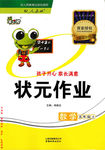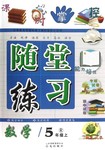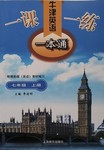
It is foolish _________ such a mistake.
A. for me to make B. for me making C. of me to make D. of me making
 开心蛙状元作业系列答案
开心蛙状元作业系列答案 课时掌控随堂练习系列答案
课时掌控随堂练习系列答案 一课一练一本通系列答案
一课一练一本通系列答案 浙江之星学业水平测试系列答案
浙江之星学业水平测试系列答案科目:高中英语 来源:2012-2013学年四川省雅安中学高一上学期入学模拟考试英语试卷(带解析) 题型:完型填空
A year ago I paid no attention to English idioms, 21 my teacher said again and again that it was important.
One day, I happened to __ 22 _ an Englishman on the road, and soon we began to __23 .As I was talking about how I was studying English, the foreigner shook his head, saying, “You don’t say! You don’t say!” I was 24 ___ , I thought, perhaps this is not a __ 25 __ topic.Well, I’d __ 26 change the topic.So I said to him, “Well, shall we talk about the Great Wall? _27 _ the way, have you ever __28__ there?” “Certainly, everyone back home will __29 __ me if I leave China without seeing __30 .It was great.” I said, “The Great Wall is one of the wonders in the world. It is a place of 31 .” Soon I was interrupted again by his words, “ __ 32 !” I couldn’t _33 __ asking, “Why do you ask me not to talk about it?” “Well, I didn’t ask you to do __34__ ”, he answered, gently surprised.
I said, “Didn’t you say ‘You don’t say’?”
Hearing this, the Englishman _ 35__ to tears.He began to __ 36___ ,“‘You don’t say actually means ‘really?’.It is an _37__ of surprise.Perhaps you don’t pay attention __38___ English idioms.”
Then I knew I had made a fool of __39__ .Since then I have been more ___50__ with idioms.
| 【小题1】 |
|
| 【小题2】 |
|
| 【小题3】 |
|
| 【小题4】 |
|
| 【小题5】 |
|
| 【小题6】 |
|
| 【小题7】 |
|
| 【小题8】 |
|
| 【小题9】 |
|
| 【小题10】 |
|
| 【小题11】 |
|
| 【小题12】 |
|
| 【小题13】 |
|
| 【小题14】 |
|
| 【小题15】 |
|
| 【小题16】 |
|
| 【小题17】 |
|
| 【小题18】 |
|
| 【小题19】 |
|
| 【小题20】 |
|
查看答案和解析>>
科目:高中英语 来源:甘肃省嘉峪关市第一中学2010届高三一模考试英语试题 题型:阅读理解
"Tear’em apart!" "Kill the fool!" "Murder the referee(裁判)!"
They are common remarks one may hear at various sporting events. At the time they are made, they may seem innocent(无害的)enough. But let's not kid ourselves. They have been known to influence behavior in such a way as to lead to real bloodshed(流血).Books have been written about the way words affect us. It has shown that words having certain meanings may cause us to react in ways quite foreign to what we consider to be our usual humanistic behavior. I see the term "opponent" as one of those words. Perhaps the time has come to delete it from sports terms.
The dictionary meaning of the term "opponent" is "enemy":“ one who opposes your interests." Thus, when a player meets an opponent, he or she may tend to treat that opponent as an enemy. At such times, winning may control one's mind, and every action, no matter how bad, may be considered correct . I recall an incident in a handball game when a referee refused a player's request for a time out for a glove change because he didn't consider them wet enough. The player rubbed his gloves across his wet  T-shirt and then shouted, "Are they wet enough now?"
T-shirt and then shouted, "Are they wet enough now?"
In the heat of battle, players have been observed to throw themselves across the court without considering the consequences that such a move might have on anyone in their way. I have also witnessed a player reacting to his opponent's intentional and illegal blocking by hitting him with the ball as hard as he could during the course of play. Off the court, they are good friends. Does that make any sense? It certainly gives proof of a court attitude which is different from normal behavior.
Therefore, I believe it is time we promoted the game to the level where it is by setting an example. Replacing the term “opponent” with “ associate” could be an ideal way to start.
The dictionary meaning of the term “associate” is “friend”;“companion.” Think it over!You may soon see and possibly feel the difference in your reaction to the term "associate' rather than "opponent."
49. Which of the following statements best expresses the author's view?
A. Bad behavior in sports will always have serious consequences.
B. The words people use can influence their behavior.
C. Unpleasant words in sports are often used by foreign athletes.
D. Unfair judgments by referees will lead to violence o n the sports field.
n the sports field.
50. Rough words are spoken during games because the players________.
A. are too eager to win B. are usually bad-tempered
C. can't afford to be polite in competitions D. treat their friends as competitors
51. What did the handball player do when he was not allowed a time out to change his gloves?
A. He refused to continue the game.
B. He angrily hit the referee with a ball.
C. He claimed that the referee was unfair.
D. He wet his gloves by rubbing them across his T-shirt.
52. The author hopes to have the current situation in sports improved by_______.
A. changing the attitude of players on the sports field
B. raising the referee's sense of responsibility
C. calling on players to use clean language on the court
D. regulating the relationship between players and referees
查看答案和解析>>
科目:高中英语 来源:2010-2011浙江瑞安中学高二下学期期中考试英语试卷 题型:阅读理解
Shopping is not as simple as you may think! There are all sorts of tricks each time we reach out for that particular brand(品牌)of product on the shelf.
Colouring, for example, varies according to what the producers are trying to sell. Health foods are packaged(包装)in greens, yellows or browns because we think of these as healthy colours. Ice cream packets(包装) are often blue and expensive goods, like chocolates, are gold or silver.
When some kind of pain-killer (止痛药) was brought out recently, researchers found that the colours turned the customers off because they made the product look weak and ineffective. Eventually, it came on the market in a dark blue and white package — blue because we think of it as safe, and white as calm.
The size of a product can attract a shopper. But quite often a bottle doesn’t contain as much as it appears to.
It is believed that the better-known companies spend, on average, 70 percent of the total cost of the product itself on packaging!
The most successful producers know that it’s not enough to have a good product. The founder of Pears Soap, who for 25 year has used pretty little girls to promote(促销)their goods, came to the conclusion: “Any fool can make soap, but it takes a genius(天才) to sell it.”
【小题1】. Which of the following may trick a shopper into buying a product according to the text?
| A.The cost of its package | B.The price of the product |
| C.The colour of its package | D.The brand name of the product |
| A.attracted the customers strongly | B.had weak effects on the customers |
| C.tricked the customers into shopping | D.caused the customers to lose interest |
| A.The way to promote goods. | B.The team to produce a good product |
| C.The discovery of a genius. | D.The brand name used by successful producers. |
| A.Choice of Good Products. | B.Disadvantages of Products. |
| C.Effect of Packaging on Shopping. | D.Brand Name and Shopping Tricks. |
查看答案和解析>>
科目:高中英语 来源:2010届高考二轮复习英语阅读理解二十篇精读 题型:阅读理解
Passage Nine(Holmes’ Knowledge)
His ignorance was as remarkable as his knowledge. Of contemporary literature, philosophy and politics he appeared to know next to nothing. Upon my quoting Thomas Carlyle, he inquired in the naivest way who he might be and what he had done. My surprise reached a climax, however, when I found incidentally that he was ignorant of the Copernican Theory and of the composition of the Solar system.
“You appear to be astonished, ” Holmes said, smiling at my expression. “Now that I do know it I shall do my best to forget it. You see, I consider that a man’s brain originally is like a little empty attic, and you have to stock it with such furniture as you choose: A fool takes in all the lumber of every sort that he comes across, so that the knowledge which might be useful to him gets crowded out, or at best jumbled up with a lot of other things, so that he has difficulty in laying his hand upon it. It is a mistake to think that the little room has elastic walls and can distend to any extent. Depend upon it, there comes a time when for every addition of knowledge you forget something that you know before. It is of the highest importance, therefore, not to have useless facts elbowing out the useful ones.”
“But the Solar System! ” I protested.
“What the deuce is it to me?” he interrupted impatiently.
One morning, I picked up a magazine from the table and attempted to while away the time with it, while my companion munched silently at his toast. One of the articles had a pencil mark at the heading, and I naturally began to run my eye through it.
Its somewhat ambitious title was “The Book of Life, ” and it attempted to show how much an observant man might learn by an accurate and systematic examination of all that came in his way. It struck me as being a remarkable mixture of shrewdness and of absurdity. The reasoning was close and intense, but the deduction appeared to me to be far-fetched and exaggerated. The writer claimed by a momentary expression, a twitch of a muscle or a glance of an eye, to fathom a man’s inmost thought. Deceit, according to him, was impossibility in the case of one trained to observation and analysis. His conclusions were as infallible as so many propositions of Euclid. So startling would his results appear to the uninitiated that until they learned the processes by which he had arrived at them they might well consider him as a necromancer.
“From a drop of water, ”said the writer, “a logician could infer the possibility of an Atlantic. So all life is a great chain, the nature of which is known whenever we are shown a single link of it. Like all other arts, the science of Deduction and Analysis is one which can be acquired by long and patient study, nor is life long enough to allow any mortal to attain the highest possible perfection in it. ”
This smartly written piece of theory I could not accept until a succession of evidences justified it.
1.What is the author’s attitude toward Holmes?
[A]Praising. B.Critical. [C]Ironical. [D]Distaste.
2.What way did the author take to stick out Holmes’ uniqueness?
[A]By deduction. B.By explanation. [C]By contrast. [D]By analysis.
3.What was the Holmes’ idea about knowledge-learning?
[A]Learning what every body learned.
B.Learning what was useful to you.
[C]Learning whatever you came across.
[D]Learning what was different to you.
4.What did the article mentioned in the passage talk about?
[A]One may master the way of reasoning through observation.
B.One may become rather critical through observation and analysis.
[C]One may become rather sharp through observation and analysis.
[D]One may become practical through observation and analysis.
查看答案和解析>>
科目:高中英语 来源:2010年甘肃省嘉峪关市第一中学高一上学期12月月考英语卷 题型:阅读理解
April Fool’s Day(愚人节), was a day of laughing and jokes. This day is kept in many countries, not only in Britain and the USA. This is a day to play jokes and make people laugh. Nobody knows when was the beginning of this custom. Some people connect it with the end of winter and the return of spring which make people merry and ready to play jokes.
In Scotland young people were sent for hen’s teeth or bird’s milk and everybody laughed when they could find such things. In the USA and Britain some people could place a sign on a person’s back with the words “push me!” Children often tell a grown-up that his sock is torn or he has something black on his face, and then shout “April Fool!” There is also the old purse(钱包) trick. A purse is left lying in the street, but when someone wants to take it, it is quickly pulled back by a string which the hidden joker holds in his hand. Or the purse may be filled with stones. Sometimes invitations are sent to people, asking them to come and visit somebody, but when they come they see that nobody expects them. Some people like to telephone to the zoo on the day and ask for Mr. Fish, Miss Fox or Mrs. Cat. All these jokes are very old but still they make people laugh.
【小题1】 ____________knows when the custom of April Fool’s Day started.
| A.One | B.Anyone | C.Nobody | D.Someone |
| A.phoning the zoo | B.placing a sign on someone’s back |
| C.playing cards | D.leaving a purse in the street |
| A.for fun | B.make people laugh |
| C.make fool of oneself | D.fool someone |
| A.How people in the west spend their April Fool’s Day |
| B.Customs are different |
| C.How British people celebrate their holidays |
| D.How April Fool’s Day comes about |
查看答案和解析>>
湖北省互联网违法和不良信息举报平台 | 网上有害信息举报专区 | 电信诈骗举报专区 | 涉历史虚无主义有害信息举报专区 | 涉企侵权举报专区
违法和不良信息举报电话:027-86699610 举报邮箱:58377363@163.com